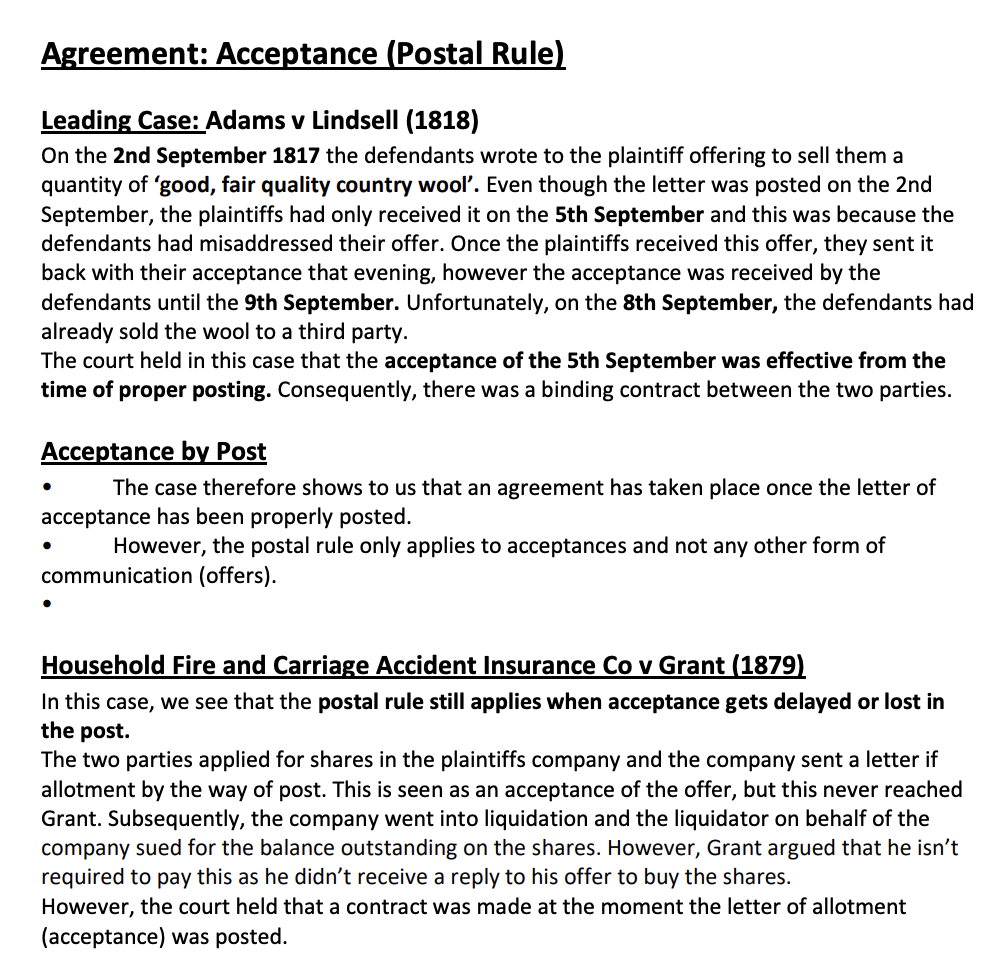The Postal Rule in Contract Law
Summary:
The PDF titled “Agreement: Acceptance (Postal Rule)” examines the legal principles surrounding the acceptance of offers via postal communication. It begins with the leading case of Adams v Lindsell (1818), which established that acceptance is effective from the time of proper posting. This principle, known as the “postal rule,” applies only to acceptances and not other forms of communication like offers. The document also discusses Household Fire and Carriage Accident Insurance Co v Grant (1879), which upheld the postal rule even when the acceptance letter was lost or delayed in the mail.
The paper further elaborates on the conditions under which the postal rule applies. In Henthorn v Fraser (1892), it was decided that the postal rule is applicable when using the post for communication is reasonable. On the other hand, Quenerduaine v Cole (1883) clarified that the postal rule is not reasonable when prompt acceptance is implied, such as in telegraph communications. Lastly, the document discusses Holwell Securities Ltd v Hughes (1974), where the court held that the offeror could explicitly oust the postal rule. In this case, the court found that the phrase “notice in writing” required actual communication, negating the postal rule.
Excerpt:
The Postal Rule in Contract Law
Agreement: Acceptance (Postal Rule)
Leading Case: Adams v Lindsell (1818)
On the 2nd September 1817, the defendants wrote to the plaintiff, offering to sell them a quantity of ‘good, fair quality country wool’. Even though the letter was posted on the 2nd of September, the plaintiffs had only received it on the 5th September because the defendants had misaddressed their offer. Once the plaintiffs received this offer, they sent it back with their acceptance that evening. However, the defendants received the acceptance on the 9th of September. Unfortunately, on the 8th of September, the defendants had already sold the wool to a third party. The court held in this case that the acceptance of the 5th of September was effective from the time of proper posting. Consequently, there was a binding contract between the two parties.


Reviews